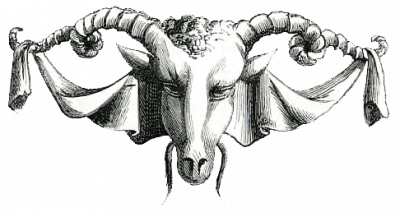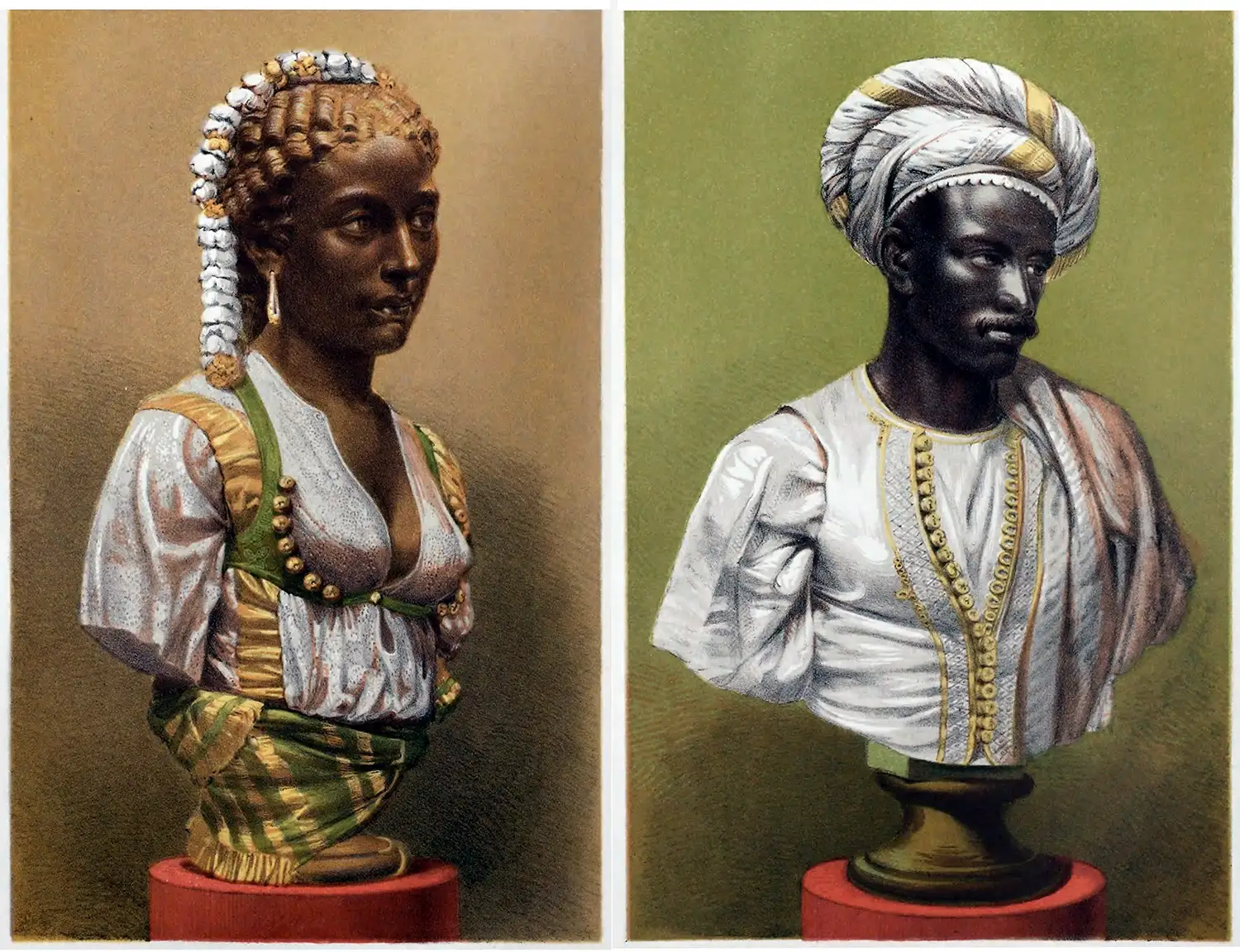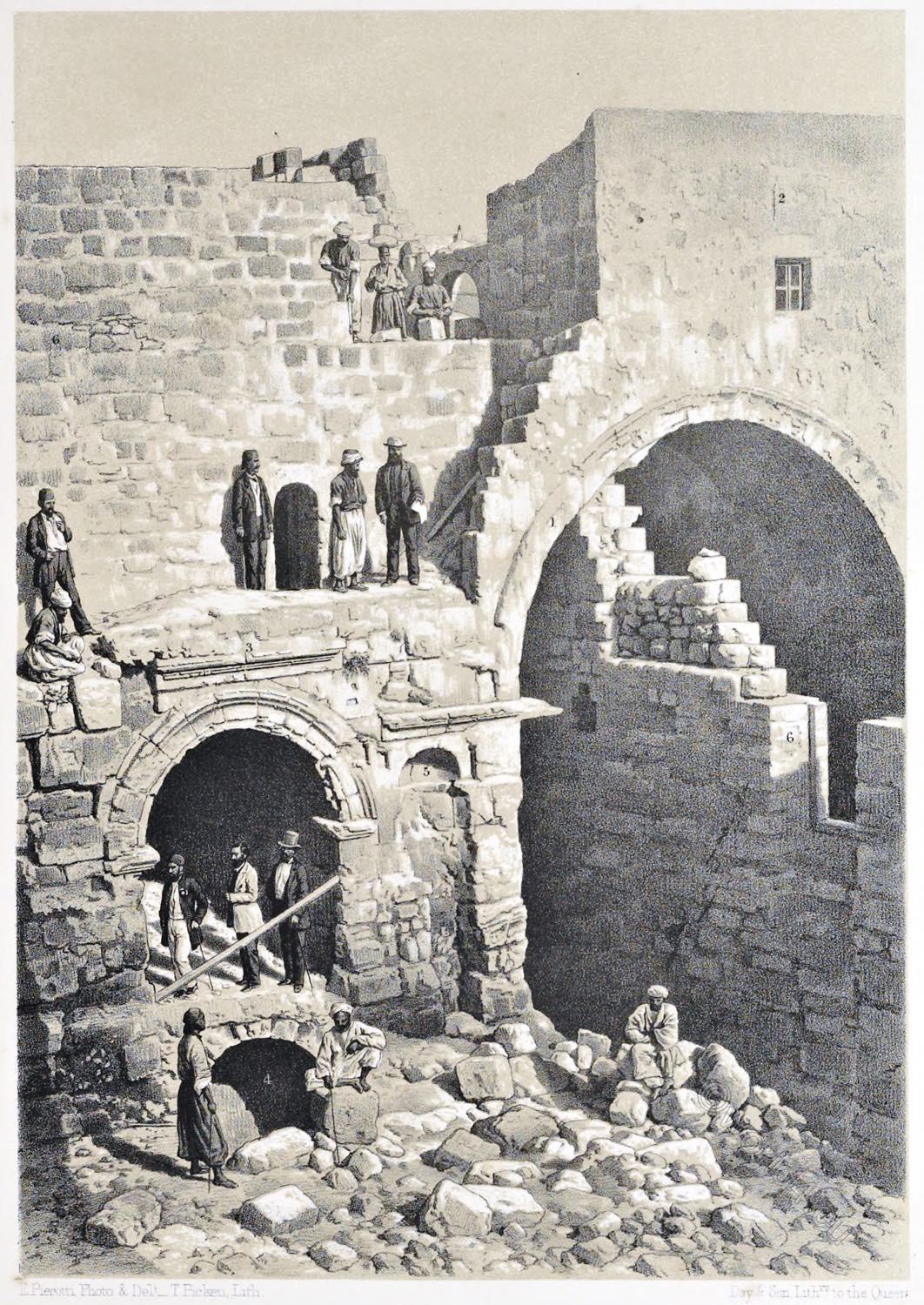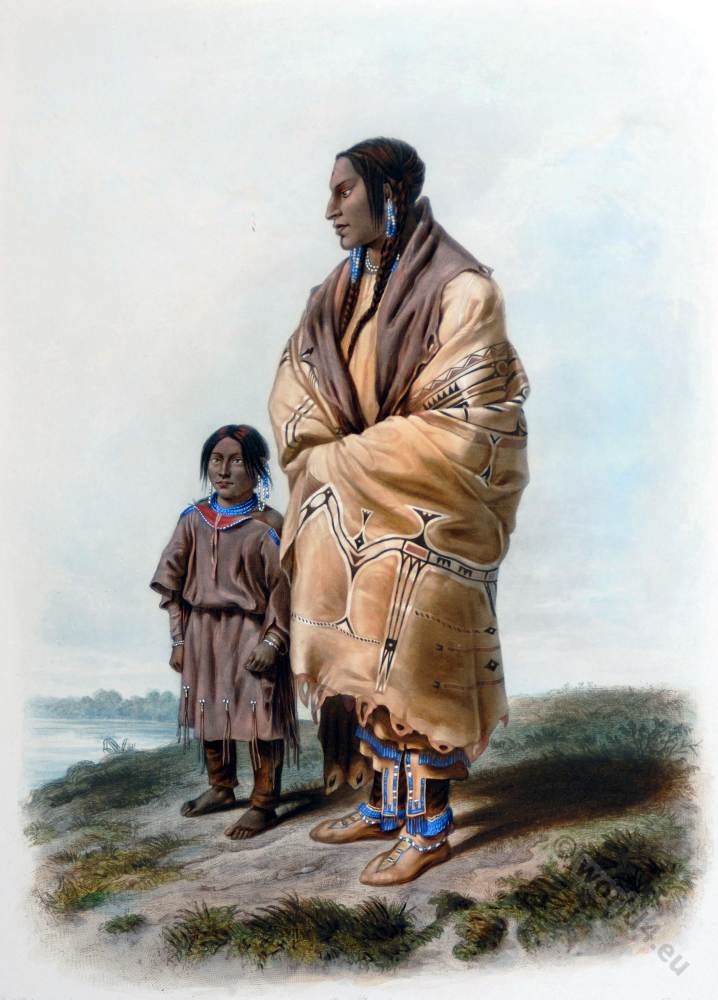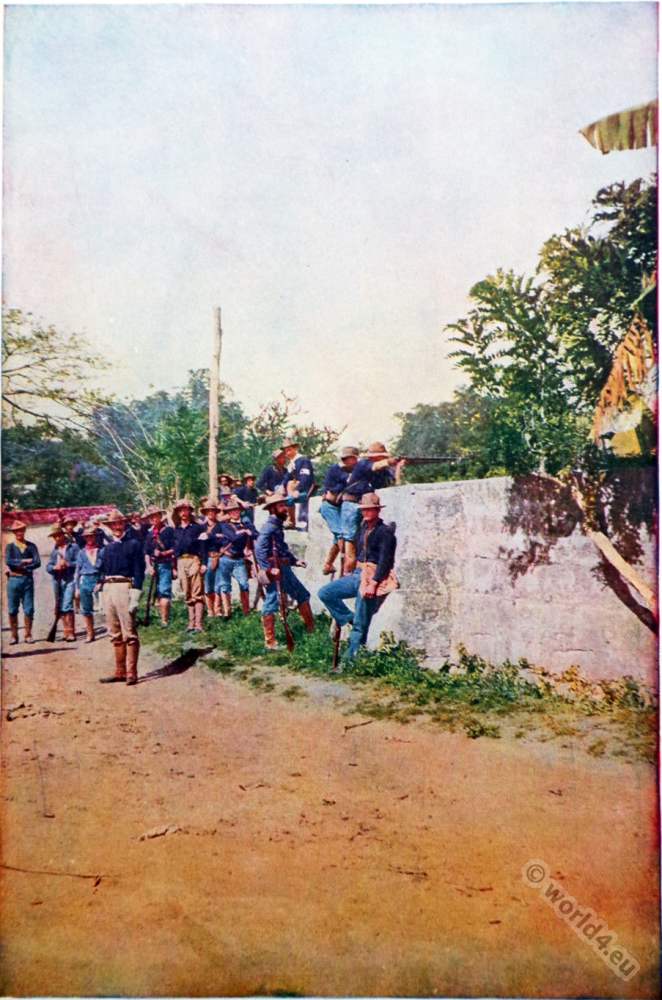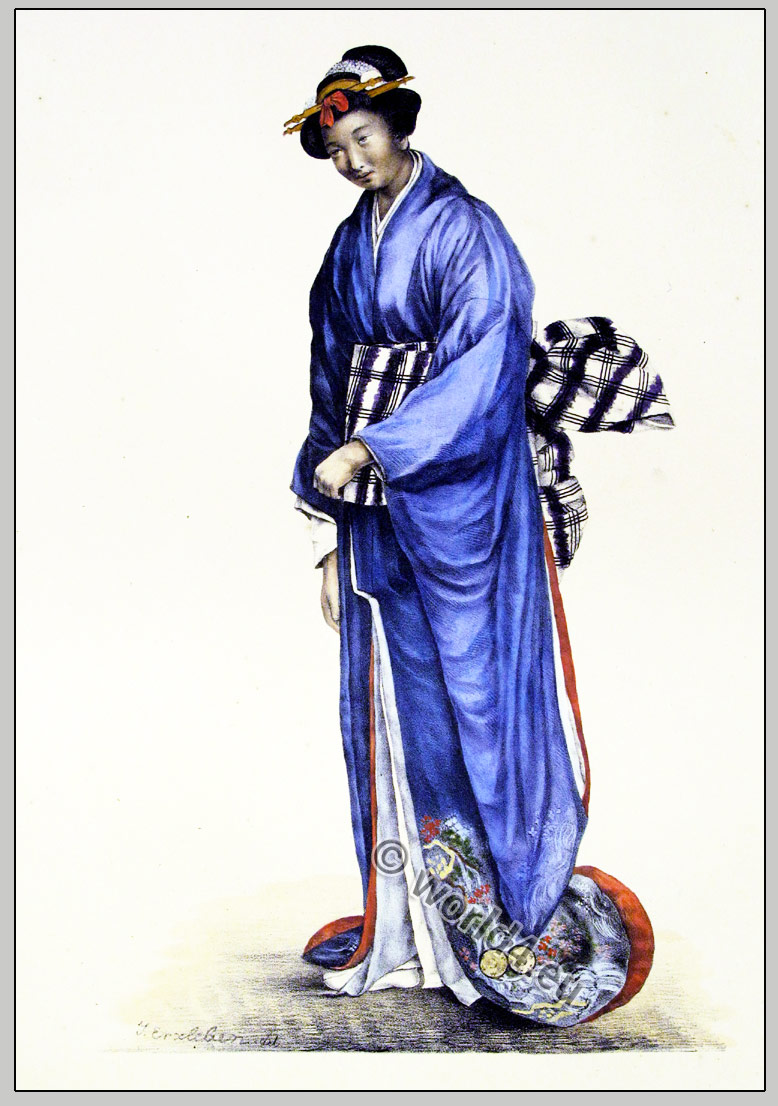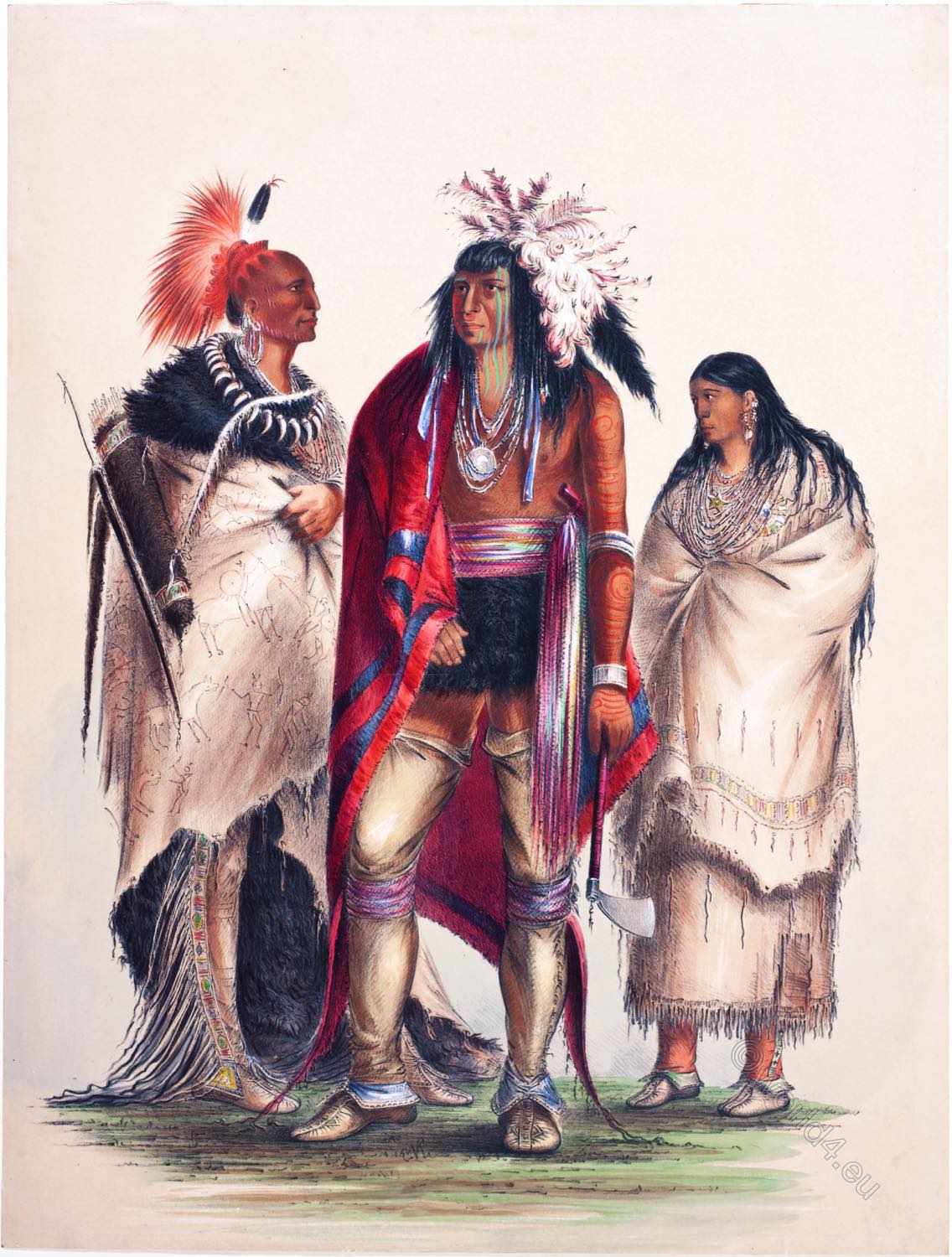
CATLIN’S NORTH AMERICAN INDIAN PORTFOLIO.
PLATE No. 1.
GROUP OF NORTH AMERICAN INDIANS, FROM LIFE.
By whatever means, at what time soever, or for what end, Man and ferocious Beasts have been placed upon the almost boundless Prairies, and through the rude and Rocky Mountains of America; and for what wise purposes soever the dates and sources of their origin have been sealed in impenetrable mystery; it is a truth incontrovertible, that such were found to be the joint inhabitants of all that important half of the globe; and a truth rendered of tenfold interest at the present time, from the lamentable fact that both are rapidly traveling to extinction before the destructive waves of civilization, which seem destined soon to roll over the remotest parts of the continent.
Of these joint and original inhabitants, one half at least, of North America, has been already entirely depopulated; and of MAX, who falls by poisons and diseases not imbibed by the brute creation, millions have already sunk under dissipation and disease which have been carried by civilized men, over the other half, and thinned their ranks to the numbers which I have estimated in my former work, to which I have alluded in the preamble to this.
Man, in the vast plains and mountains of America, has been found, as in other parts of the world, maintaining his ascendency over all the beasts of the forest, by the aid of his reason and invention, which have enabled him to construct his weapons, and to employ the means to convert the various animals to his aid and his subsistence in the numerous modes represented in the following pages.
The group in Plate No. 1 is composed of three Portraits from my Collection, representing three different tribes, of various latitudes, und well illustrating a number of the leading charateristics of this interesting part of the human family.
An OSAGE WARRIOR, from a southern latitude, entirely primitive in his habits and dress; his head shaved, and ornamented with the graceful crest manufactured from the hair of the deer’s tail and horsehair, (an uniform custom of the tribe;) his robe of the buffalo’s hide, with the battles of his life emblazoned on it; his necklace made of the claws of the grizzly bear; his bow and quiver slung upon his back; and his leggings fringed with scalp-locks taken ns trophies from the heads of enemies slain by him in battle.
An IROQUOIS (an almost extinguished tribe), from a northern climate, with long hair; with a ring in his nose, and headdress of quills and feathers, according to the mode of his tribe; with his tomahawk in hand, and his dress mostly of civilized manufacture, indicating an approach to civilization, to which all the remnants of’ this and several other contiguous tribes have long since attained.
A PAWNEE WOMAN, from an intermediate latitude, in primitive dress, made entirely of skins; and in this as well as in the mode of dressing the head and ornamenting the person, a very fair illustration of the general modes and personal appearance of the females, who exhibit much less forcibly than the men, the characteristic differences of the various tribes.
Two millions or more of these reasoning beings are still existing in North America, strangely mixed up with, and holding dominion over, the beasts of the forest, upon the flesh of which they chiefly subsist, obtaining it by the various exciting means of appropriation to which I am now to introduce the reader in the following illustrations.
Source: Catlin’s North American Indian portfolio. Hunting scenes and amusements of the Rocky Mountains and prairies of America. by George Catlin (1796-1872). New York, J. Ackerman 1845.
